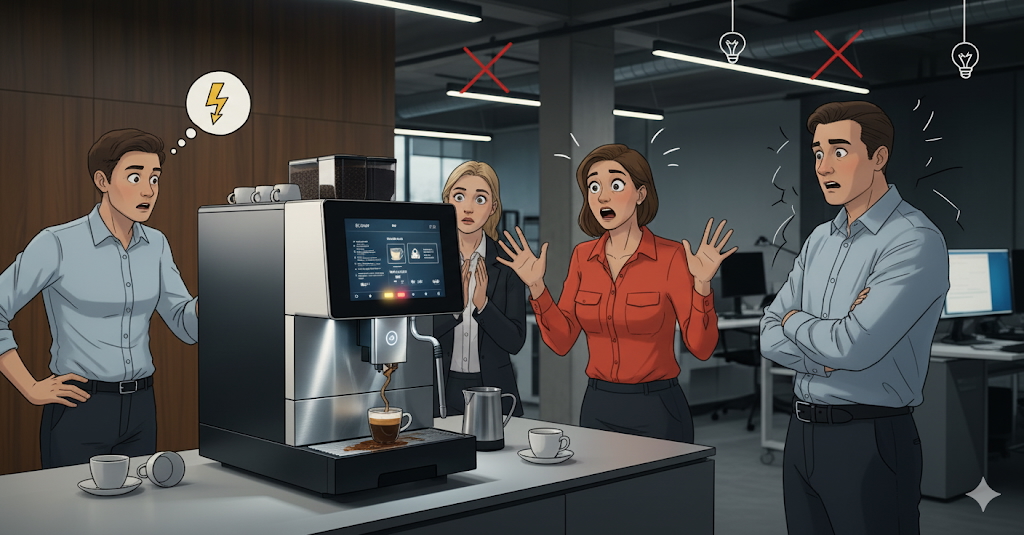The Two-Thousand-Dollar Coffee Machine: A Cautionary Tale of Leadership
Sep 14, 2025

In a fast-growing tech company, a brand new, state-of-the-art coffee machine arrived for the office kitchen. This wasn't just any machine; it was a gleaming behemoth of brushed steel and touchscreens, capable of producing lattes and cappuccinos with the press of a single button. The team leader, a woman I'll call Sarah, was thrilled. She saw it as a symbol of their success and her generosity.
As the technician set it up, a young intern named Alex nervously tried to get Sarah’s attention. "Sarah," he said quietly, "I think we should probably put a sign up about the power usage. Our old breaker..."
Sarah, however, was already a mile ahead. She was in full "leader" mode, gesturing to the different drink options. "Isn't this fantastic? We can all be our own baristas! Alex, what do you think? I'm sure you'll be a pro at this in no time."
Alex tried again, a little more insistent. "I just think the..."
"Don't worry about the details, Alex," Sarah chuckled, patting him on the shoulder. "This is a simple machine. Everyone will figure it out. It's designed to be user-friendly."
And so, the machine went into service without a single word of caution.
The next morning, at the peak of the 9 a.m. rush, it happened. Four people, all at once, pressed the buttons for their respective caffeinated concoctions. The machine whirred to life, lights blinking, and then everything went dark.
Not just the kitchen. The entire floor.
Silence. Then a chorus of groans. Servers went offline. Laptops shut down. The CEO, who happened to be on that floor, let out a very audible sigh.
Alex had been right. The old office building's electrical breaker couldn't handle the power surge of the new machine when multiple people used it at once. The "simple" detail that Sarah had brushed off led to a two-hour work stoppage, a frantic call to an electrician, and a rather embarrassing post-mortem meeting.
The Leadership Lesson: Why the Quiet Voice Matters
We often think of leadership as a megaphone, a tool for broadcasting our brilliant ideas to the world. But the truth is, the most powerful tool a leader possesses isn't a megaphone at all. It's a pair of ears.
Sarah was a good leader with good intentions, but she was so focused on her grand vision that she failed to listen to the quiet, crucial warning from the person closest to the problem, the intern who had done the research.
That day, the cost wasn't just the electrician's bill. It was the loss of trust. The team saw that Sarah's enthusiasm, while well-meaning, had blinded her to a practical reality. They learned that their voices, especially on the "small" things, might not be heard.
Great leaders don’t just hear, they actively listen. They:
- Create space for dissenting opinions. They know that the most important insights often come from the people on the front lines, not just in the boardroom.
- Ask for feedback and then truly absorb it. They understand that the quietest voice in the room might hold the key to solving the biggest problem.
- Lead with curiosity, not just conviction. They are more interested in understanding the full picture than in just being right.
The next time you're leading a meeting, a project, or an entire team, try putting down the megaphone. Put on your listening ears instead. You might just prevent an epic, two-thousand-dollar disaster and, in the process, build the kind of trust and respect that no amount of bold speeches can ever buy.
This story highlights how crucial listening is, but I've found that even with conscious effort, becoming a good listener can still be a struggle. I will share my personal insights on this journey in a future article, which I hope will be helpful to others.
#Leadership #ListeningSkills #Communication #Storytelling #RealLifeLessons